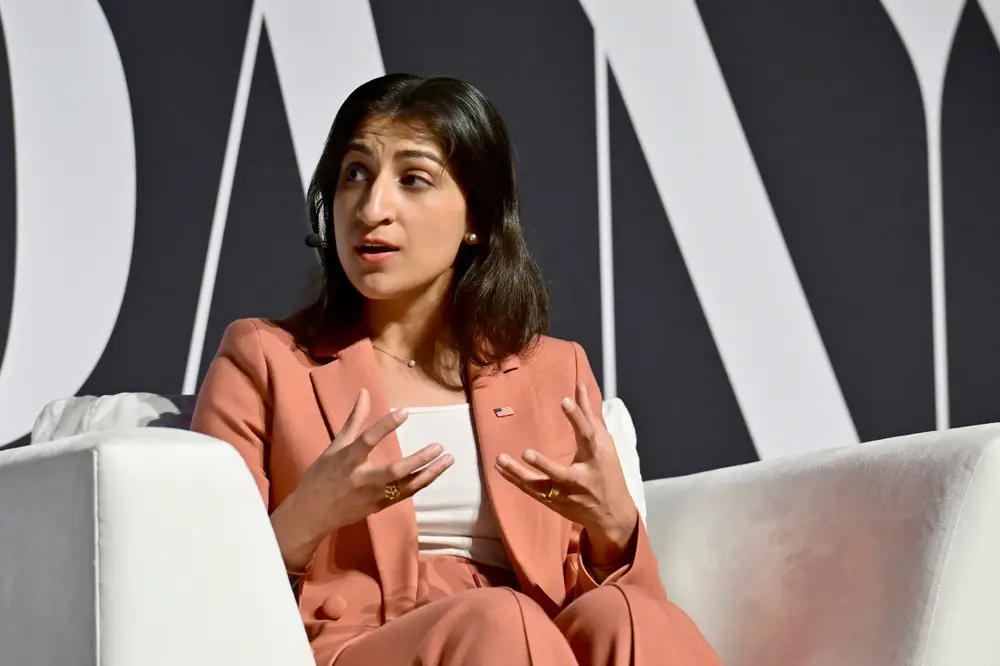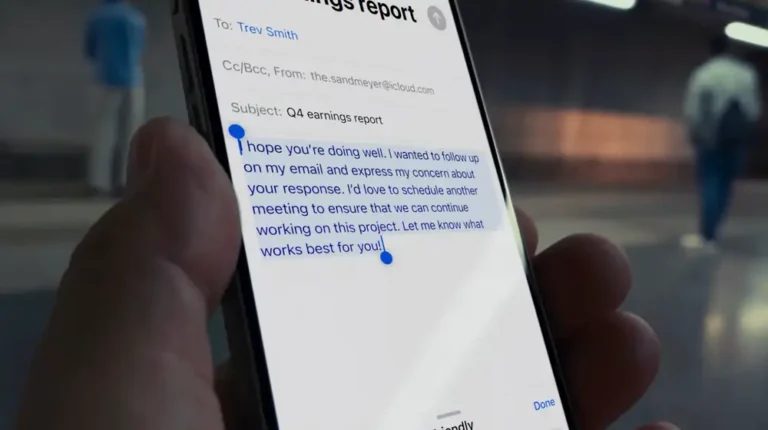FTC chair Lina Khan warns that airlines might one day use AI to find out you’re attending a funeral and charge more

FTC chair Lina Khan at the 2024 Fast Company Innovation Event.
Consumers could end up paying the (personalized) price as AI becomes more popular, FTC Chair Lina Khan recently warned.
At the 2024 Fast Company Innovation Festival, Khan said that although AI may be beneficial, it’s already becoming some of the FTC’s “bread and butter fraud work.”
“Some of these AI tools are turbocharging that fraud because they allow some of these scams to be disseminated much more quickly, much more cheaply, and on a much broader scale,” she said.
AI is already helping automate classic online scams like phishing and even introducing new, alarming frauds like voice cloning that can target unsuspecting consumers.
But Khan also took the opportunity to talk about a different way AI could be used to target consumers: retailers using surveillance technology and customer data to change the prices they offer to specific shoppers. Khan said the FTC is looking into AI’s potential role in increasing the risk of price discrimination.
She noted that price discrimination differs from dynamic pricing, in which firms adjust prices based on supply and demand to reflect market conditions. Both practices, while at times controversial, are generally legal if the specific cases follow the law and regulations.
The proliferation of AI could lead to more instances of varying prices based on who you are, Khan said.
“Given just how much intimate and personal information that digital companies are collecting on us, there’s increasingly the possibility of each of us being charged a different price based on what firms know about us,” Khan said.
The FTC chair offered possible examples, such as people with nut allergies being charged more for granola bars without nuts or restaurants using QR codes to create personalized menus for diners.
“Or somebody being charged more for an airplane ticket because the company knows that they just had a death in the family and need to fly across the country,” she said.
The FTC issued a market inquiry in July, ordering eight companies to provide information on “surveillance pricing products and services” that incorporate consumer data such as location, demographics, credit history, and browsing or shopping habits.
Khan said the aim of the inquiry was to study whether this targeted pricing is occurring, and if so, to examine the extent and any possible impacts that could harm consumers.
“Because we, I don’t think, want to wake up one day where this is just now the new normal,” she said. “We want to be able to figure out: is this really an economy and society that we want to be living in, or do we want some guardrails there.”
Khan said that dynamic pricing, while a separate pricing strategy, may have helped price targeting become more prevalent as people become increasingly used to encountering it.
“I think the fact that we’ve been living with dynamic pricing in some areas, like ride-sharing for some time, now has kind of destabilized for people the idea that we should all be charged one price at a particular moment,” she said.
Dynamic pricing itself has already proven controversial in some areas. Wendy’s received major heat from customers after announcing plans to introduce dynamic pricing and AI-enabled menu changes as early as 2025. A Wendy’s spokesperson previously told B-17 the future menu board would feature different offerings and “suggestive selling based on factors such as the weather,” like pushing a cold Frosty on a hot day. Later, the fast-food chain clarified that its dynamic pricing would not raise prices but rather only provide discounts.
Other stores have also begun integrating tech into their shopping experience. In 2019, Kroger partnered with Microsoft to roll out digital price tags in about 100 stores, and Walmart plans to implement digital shelf tags in 2,300 stores by 2026. A Walmart spokesperson previously told B-17 that its new digital shelf tags would not be used to surge prices during high demand.
However, the moves raised concerns about whether consumers would be able to keep up if stores were to one day implement surge pricing on necessities like groceries. Experts have argued that it could make budgeting difficult, for example.
Elizabeth Pancotti, the director of special initiatives at the left-leaning think tank Roosevelt Institute, previously told B-17 that many people rely on steady prices.
“Prices are high, but they’re at least stable,” Pancotti said. “And you could see a lot more instability.”






